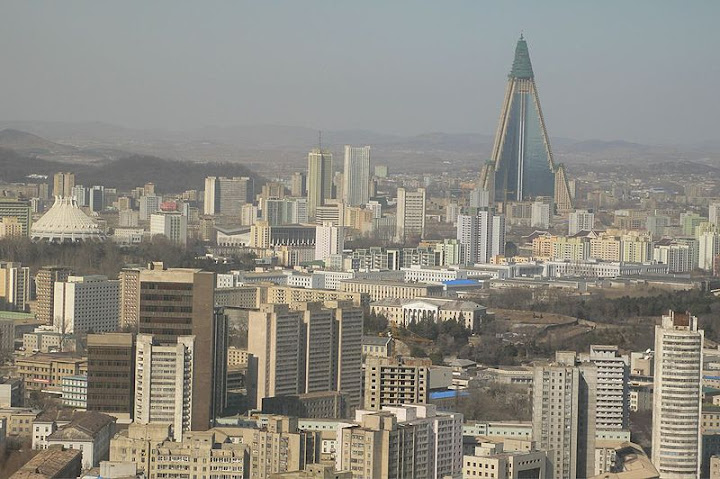North Korea: Reforms Imminent? – Analysis
By IPCS
By Ruhee Neog
Talk about North Korea’s satellite launch in April 2012 is now being followed by a slew of speculations about political change and possible economic reforms on the horizon. What has prompted these speculations? More importantly, could there be any truth to them or are they, as is usually the case of North Korea, a misguided shot in the dark?
The first signs of the regime heading towards change were prompted by the dismissal of North Korean Army Chief of General Staff Ri Yong-ho from all posts held by him. He is thought to have been removed to downsize the role of the military in state affairs, over which it is known to have a firm hold. This is a significant development especially because he was naturally one of the chief advocates of Jong-il’s ‘military first’ (songun) policy. In terms of public posturing too, Jong-un has adopted a deliberately informal demeanour. This has been demonstrated in staged photographs of him joking with workers, taking joy rides on a rollercoaster with a visibly thrilled foreign diplomat sitting opposite him, delivering public speeches and making appearances with his young, attractive wife – all suggestive departures from the way Jong-il conducted himself. Admittedly, these instances lend themselves very well to speculations on alleged North Korean reforms and the ‘opening up’ of the regime. However, one must tread with caution.

Posturing does not necessarily signal actual intent, nor should too much be made of a few public appearances that may eventually have nothing to do with wide-ranging change. The KCNA (Korean Central News Agency), on its part, has vehemently disavowed news regarding reforms – it does not do anything for the image of an airtight command economy. Jong-un may have ousted Yong-ho to inch towards a more inclusive approach that would allow the party and cabinet greater say in matters of the economy and society than the military. This apparent fall-out may also have been caused by the apparent split within the ruling elite, with some opting for the traditional hardline stance and others looking to soften North Korea’s international image, especially at a time when it is dire need of outside assistance. None of this indicates a major economic upheaval as envisaged by many, but merely posturing to make potential benefactors more amenable to providing the flooded and food and resource-starved state with aid.
There has been a great deal of coverage of the June 28 economic measures that have apparently been introduced in North Korea. It is claimed that these would allow some independence to entities in identifying products for sale, determining their marketing strategies, and setting prices. Farmers would also be able to keep a share of the produce (30 per cent), instead of having to ship off their entire produce basket to Pyongyang. It has also been suggested that these reforms bear some resemblance to Chinese reforms implemented by Deng Xiaoping. If true, this would of course be a dramatic loosening of a very tightly controlled command economy. It may be easier to accept if they are seen as pilot projects that can come to a sudden whimsical end and signal no noteworthy change whatsoever – aimed therefore both as a domestic experiment as well as a ploy to assuage international public opinion. It is difficult to believe that a regime that vests all power in one man would be open to the erosion of authority, however slight that may be, for fear of loss of influence and control, and the development of ideas of freedom.
Interestingly, North Korea has witnessed reforms being attempted in the past with no success, which do not make for promising precedents. It must be remembered that these were tested under a ruler who had been in power for a sustained period of time. For example, Jong-il introduced the makings of a market economy in 2003 but these were soon lifted in 2005. Jong-un has yet to complete a year in office, and while he is slowly consolidating power, he can hardly seek to over-turn the erstwhile system in such a short period of time and be successful at it.
By removing Yong-ho in what appears to be a move to diminish the power of the military, Jong-un has probably earned himself the ire of many domestic elements. He seems to be keen on publicising his own brand of informality that would paint him in a ‘human’ light; certainly more so than his father who delivered one public lecture during his entire rule. There are therefore many issues Jong-un already has to contend with at a time of leadership transition in North Korea. Expecting him therefore to usher in wide-ranging change over and above what is already being demonstrated is a tall order indeed.
Ruhee Neog
Research Officer, IPCS
email: [email protected]
